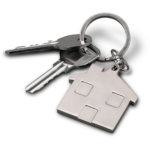 There is an old saying that goes, “Landlords grow rich in their sleep.” This saying means that owning rental properties can be a lucrative way to earn passive income. If you’re a homeowner who’s moving on, you may be considering whether to sell your current home or rent it out. While being a landlord isn’t for everyone, it can have its benefits.
There is an old saying that goes, “Landlords grow rich in their sleep.” This saying means that owning rental properties can be a lucrative way to earn passive income. If you’re a homeowner who’s moving on, you may be considering whether to sell your current home or rent it out. While being a landlord isn’t for everyone, it can have its benefits.
Advantages of Renting Out Your Home
- Passive Income: One of the biggest benefits of being a landlord is that you can earn passive income. Rental income can help you pay off your mortgage faster, save for retirement, or invest in other income-generating assets.
- Tax Benefits: There are several tax benefits associated with being a landlord. You can deduct expenses such as mortgage interest, property taxes, repairs, and maintenance from your rental income. In addition, you may be able to claim depreciation on your rental property, which can reduce your taxable income.
- Property Appreciation: Real estate values generally increase over time, which means your rental property could appreciate in value. If you hold onto your rental property long enough, you could potentially sell it for a profit.
- Flexibility: Renting out your home gives you flexibility. If you need to move back into your home in the future, you can end the lease with your tenant or wait for the lease to expire.
- Wealth Building: Owning rental properties can be a form of wealth building. Over time, you can accumulate more rental properties and build a real estate portfolio.
Disadvantages of Renting Out Your Home
- Vacancy and Maintenance Costs: Vacancy and maintenance costs can eat into your rental income. If your property sits empty for a few months, you’ll still need to pay your mortgage and other expenses. In addition, you’ll need to budget for maintenance and repairs.
- Legal Liabilities: As a landlord, you have legal responsibilities to your tenants. If you don’t fulfill these responsibilities, you could face legal liabilities. For example, if your tenant is injured on your property due to your negligence, you could be held liable.
- Tenant Issues: Dealing with tenant issues can be time-consuming and stressful. You’ll need to screen potential tenants, handle lease agreements, and address any tenant complaints or concerns.
In conclusion, being a landlord can have its advantages and disadvantages. If you’re a homeowner who’s moving on and considering whether to sell or rent out your home, it’s important to weigh the pros and cons carefully. If you decide to rent out your home, it’s crucial to do your due diligence, screen potential tenants thoroughly, and be prepared to handle any issues that may arise. At Jones Hollow Realty Group, we can help you navigate the rental market and make informed decisions about your rental property.

